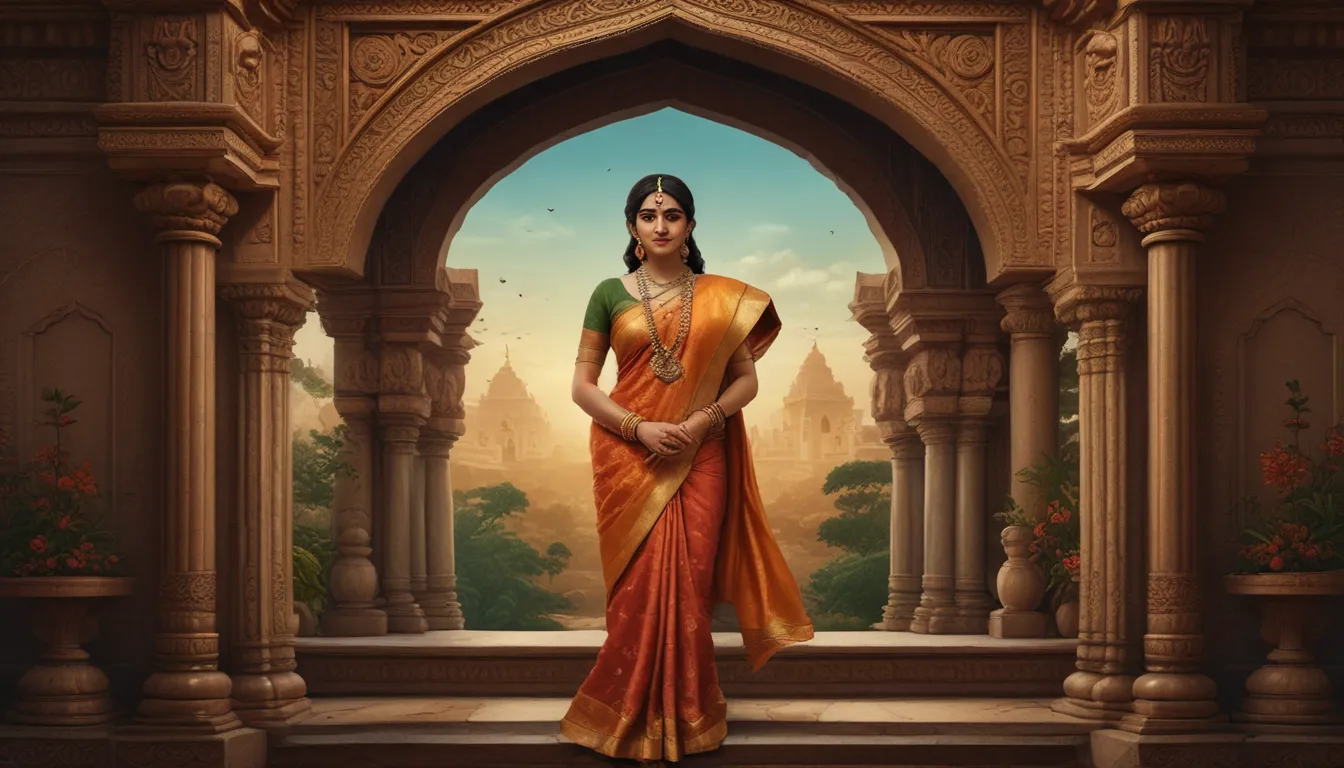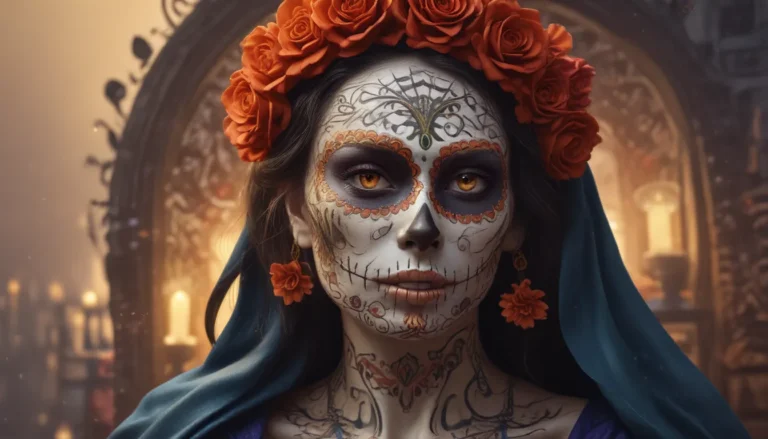The images in our articles may not match the content exactly. They are used to grab your attention, not to show the exact details in the text. The images complement the text but do not replace it.
Telugu culture, deeply rooted in tradition and history, is a vibrant tapestry of customs, arts, and cuisine originating from the southeastern part of India, specifically Andhra Pradesh and Telangana. This remarkable cultural heritage celebrates a spirit of joy, community, and artistic excellence, making it a fascinating subject to explore. In this detailed article, we dive into 24 captivating facts about Telugu culture, shedding light on its depth and breadth. Whether you are a curious learner or a proud native, these insights promise to enrich your understanding and appreciation of Telugu traditions.
Unveiling the Essence of Telugu Culture
Telugu culture, a rich amalgamation of art, literature, and spirituality, is deeply entrenched in the history and traditions of the Telugu-speaking populace residing in Andhra Pradesh and Telangana.
The Melodic Language and Literary Riches
- Telugu, often likened to “The Italian of the East,” stands out for its melodious quality. As the largest member of the Dravidian language family, it has been honored as one of India’s classical languages. 2. Telugu literature boasts extensive use of figurative language and poetry, with luminaries like Nannaya, Tikkana, and Yerrapragada, collectively known as the Kavitrayam, playing a pivotal role in translating the epic Mahabharata into Telugu, enriching its literary heritage.
Vibrant Festivals and Timeless Celebrations
- Pongal, also referred to as Sankranti, marks one of the most cherished festivals, symbolizing the harvest season. Families unite to revel in festive meals and engage in traditional activities. 2. Ugadi, heralding the Telugu New Year, signifies the dawn of a new era. The occasion sees people cleaning their homes, donning new attire, and preparing special dishes like Ugadi Pachadi, a harmonious blend of all flavors.
Traditional Attire and Dazzling Jewelry
- Women traditionally don sarees, particularly the Pochampally and Gadwal, renowned for their vibrant hues and intricate patterns. Men opt for traditional attire like dhotis and kurtas during festivals and ceremonies. 2. Jewelry holds a pivotal role in Telugu culture, with women bedecking themselves in gold and diamond ornaments, especially during weddings and festive occasions, reflecting their social status and affluence.
Savory Delicacies and Flavorful Treats
- Telugu cuisine is celebrated for its bold and zesty flavors, with rice being the staple sustenance. Culinary delights like Hyderabadi Biryani and Pesarattu showcase the diversity and opulence of Telugu culinary traditions. 2. Sweets and snacks like Boorelu and Pootharekulu form an integral part of Telugu cuisine, often prepared during festivities and special events.
Artistic Expressions and Entertainment
- Kuchipudi, a traditional dance form originating from Andhra Pradesh, epitomizes the grace and narrative of Telugu culture. 2. Telugu cinema, popularly known as Tollywood, has made significant contributions to Indian cinema, garnering acclaim not only within the country but also on a global scale.
Social Fabric and Time-Honored Customs
- The prevalence of joint family systems underscores the reverence for elders and the strength of familial bonds. Festivals, weddings, and celebrations witness extensive participation from extended family members. 2. Marriage rituals are elaborate affairs, spanning several days and encompassing numerous pre and post-wedding ceremonies, imbued with profound symbolism reflecting the values and customs of Telugu culture.
Architectural Marvels and Historical Treasures
- Architectural marvels in Telugu-speaking regions bear testament to the influence of diverse dynasties. Temples like the Lepakshi Temple and the Thousand Pillar Temple exemplify exquisite craftsmanship and artistic opulence. 2. Fortresses such as the Golconda Fort serve as historical landmarks, offering insights into the military acumen and architectural brilliance of the Telugu populace.
Embracing Education and Intellectual Pursuits
- Education holds a paramount position in Telugu culture, with a strong emphasis on fields like engineering, medicine, and information technology. The region has fostered numerous scholars, poets, and intellectuals who have made substantial contributions across various domains. 2. Chess, with its roots tracing back to ancient India, remains a popular intellectual pursuit, with Telugu states producing grandmasters who have excelled on international platforms.
Emphasizing Environmental Conservation
- Telugu culture places a significant emphasis on environmental preservation, with initiatives like Vanamahotsava promoting tree planting and conservation. 2. Sacred groves, designated as Pavitra Vanalu in Telugu, serve as protected forest areas dedicated to local deities or village gods, showcasing a traditional approach to biodiversity conservation.
Navigating Modern Influences and Global Engagements
- Embracing globalization, Telugu culture has seamlessly integrated modernity while upholding its traditional roots. Festivals now witness a fusion of age-old customs with contemporary practices. 2. The Telugu diaspora, dispersed worldwide, plays a pivotal role in championing and safeguarding Telugu culture through language schools, cultural festivals, and culinary establishments.
In Praise of Telugu Culture
Telugu culture, a living and evolving entity, continues to flourish both domestically and globally. Its rich tapestry of traditions and forward-looking ethos render it a distinctive and vibrant facet of India’s diverse cultural milieu. Valuing education and innovation, Telugu culture not only preserves its historical legacy but also pioneers new avenues in arts, science, and technology. Strongly rooted in environmental consciousness, Telugu culture exemplifies a profound respect for nature ingrained in everyday life. With a global diaspora committed to tradition yet attuned to the future, Telugu culture transcends borders and generations, perpetuating its vibrant legacy.
A Peek into Telugu Traditions
Telugu culture, steeped in history, art, and customs, provides an enchanting exploration into one of India’s classical civilizations. From the festive exuberance of Pongal and Dussehra to the intricate artistry of Kuchipudi dance and Carnatic music, this culture embodies a harmonious blend of tradition and contemporaneity. The enduring legacy of the Telugu language, among the longest-surviving classical languages globally, serves as a testament to the timeless allure of Telugu heritage. As we unravel the 24 captivating facts about Telugu culture, it becomes evident that this vibrant community continues to thrive, cherishing its ancient traditions while embracing the advancements of the modern era. Whether through its delectable cuisine, captivating folklore, or the warmth of its people, Telugu culture remains an integral part of India’s cultural kaleidoscope, beckoning all to partake in its enduring splendor.
Your Feedback Matters
We are committed to delivering credible and compelling content that resonates with our audience. Each fact on our platform is a product of contributions from real users like you, offering a diverse tapestry of insights and knowledge. Our dedicated team of editors meticulously reviews each submission to ensure accuracy and reliability, ensuring that the information we provide is not only captivating but also authentic. Trust in our dedication to quality and authenticity as we journey together to discover and learn through the wealth of information we present.






